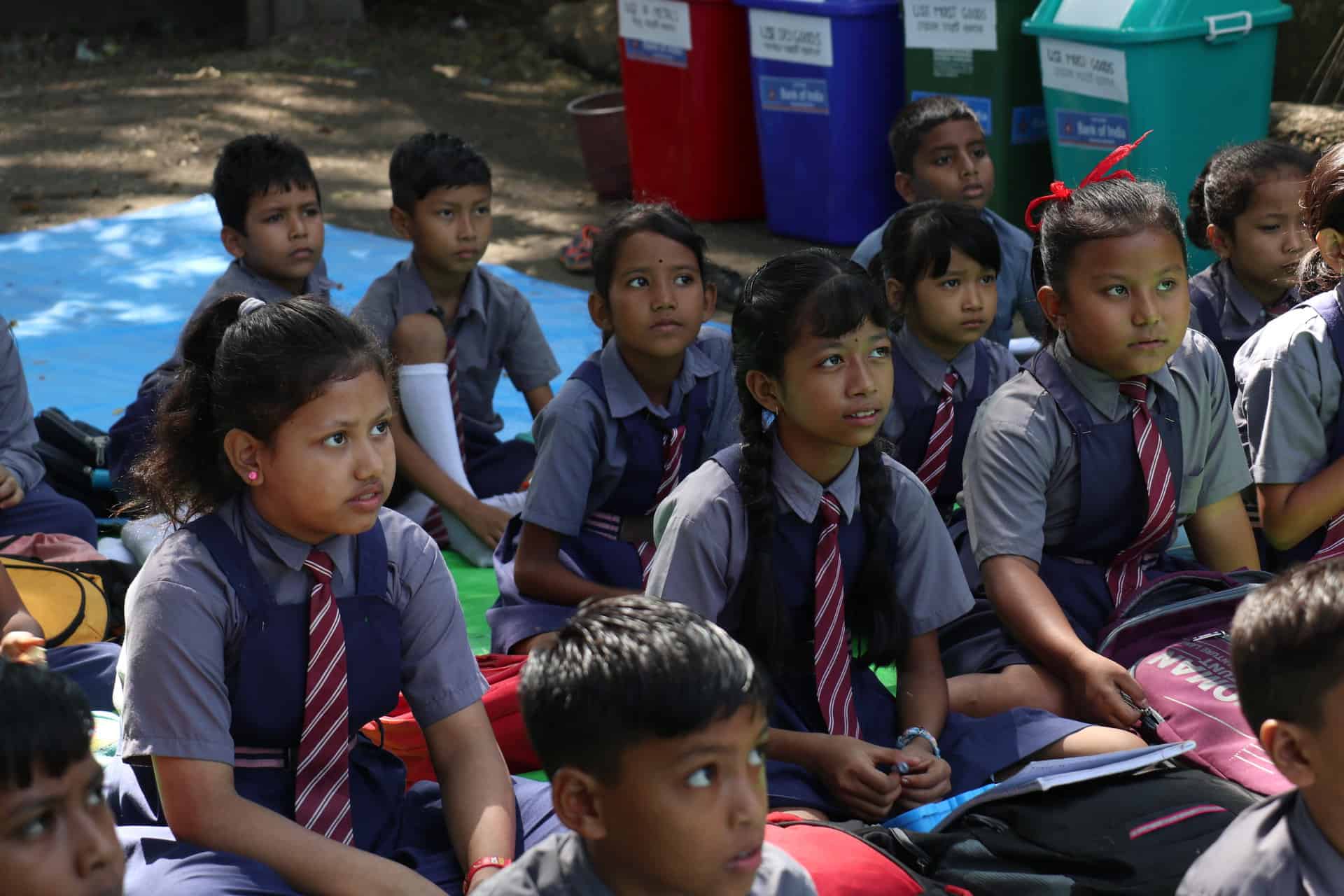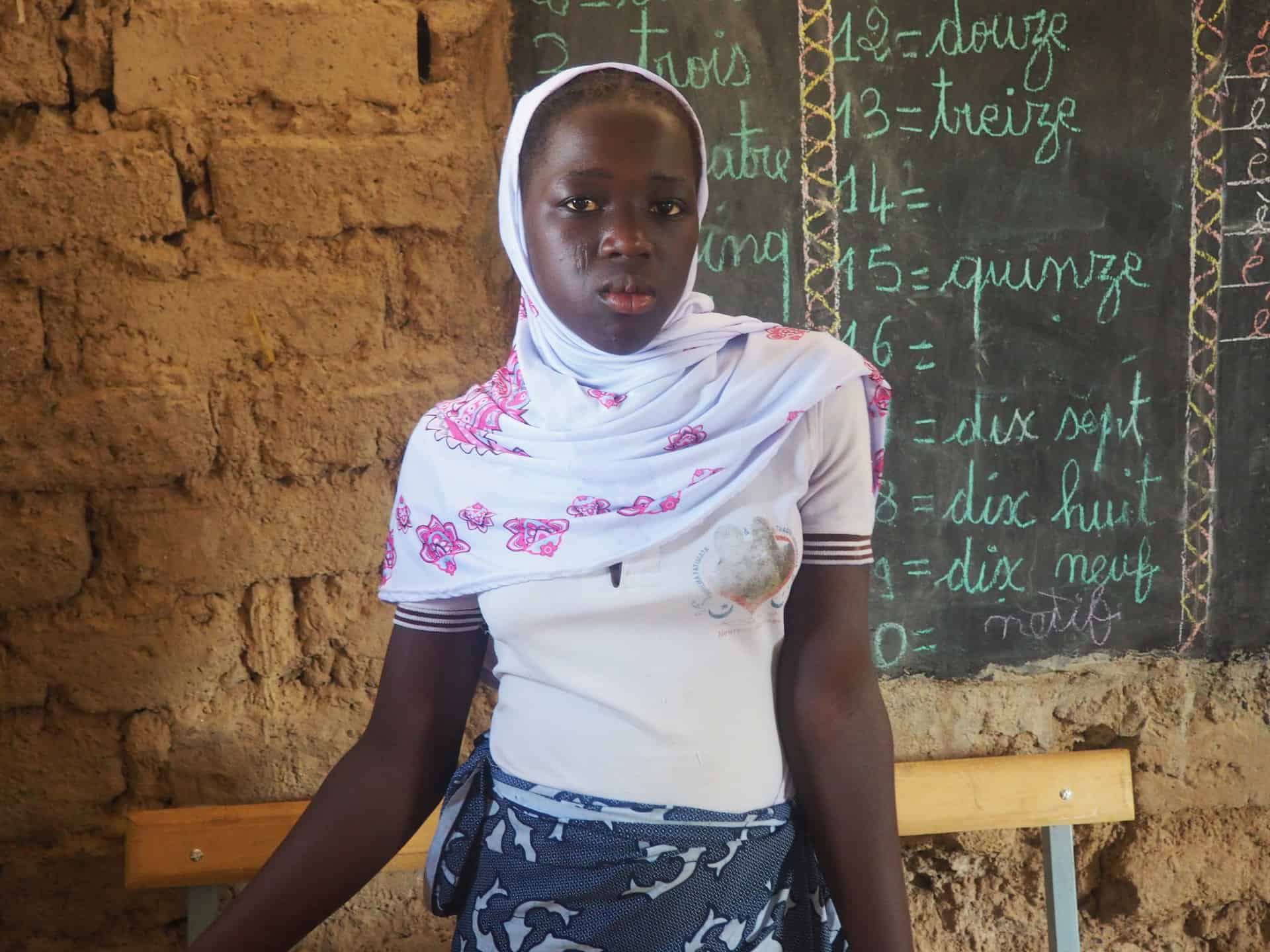Photo credit: Chandra Kiran
The International Institute for Environment and Development (IIED) in partnership with Aide et Action has published a new report to highlight the dramatic and yet little recognized impact of climate change on population displacement and human trafficking.
The increase in natural disasters, the rise in food insecurity and the decline in purchasing power caused by climate change are affecting vulnerable populations more severely and sharply. These families, whose survival depends mainly on natural resources, have no choice but to adopt survival strategiesIn addition to the above, many people are forced to leave their villages of origin in the hope of finding a better life, to limit or even eliminate non-vital expenses such as education or health. But such forced displacement exposes people to terrible dangers and exacerbates their vulnerability to trafficking and worst human rights violations.
Climate change as a factor in human trafficking
These violations (exploitation, forced labour, and human trafficking) will worsen as climate change is expected to worsen. Yet no one today, neither international organisations nor politicians, seem to recognise this danger, nor to take adequate measures to address it. In this context, the report "Climate change, migration and vulnerability to trafficking published by International Institute for Environment and Development (IIED) and Aide et Action is the first empirical and concrete evidence of the link between climate change, human trafficking and slavery. The quantitative and qualitative study analyses the behaviour and habits of 420 disadvantaged households from two regions: Kendrapara district (Odisha), which is basically rich and prosperous, with a predominantly literate population, but which is prey to numerous natural disasters, and Palamu district (Jharkhand), which is underdeveloped and more exposed to slow-onset climatic events. In both regions, the conclusions are clear: the slow and brutal consequences of climate change (increase in natural disasters, soil erosion, decrease in natural resources, food insecurity and famine, decrease in water resources, etc.) have deprived the most vulnerable populations of acceptable living conditions and minimal resources. Deprived of social protection that could mitigate the economic and social shock, the most vulnerable families are forced to move and are massively victims of human trafficking. Climate change is therefore the new driver of migration and human trafficking, the report concludes.
Climate and human trafficking: a UN priority
" I am delighted with the production of this report, as the increase in risks and traffic related to climate change is now the priority of my mandate. "explained Siobhán Mullally, UN Special Rapporteur on Trafficking in Human Beings especially women and children". The two examples analysed in this study, one in a region plagued by climatic disasters, the other exposed to slower and less visible phenomena, show in an empirical and concrete way the impacts of climate change on the most vulnerable populations. In particular, they show the extent to which they exacerbate their vulnerability to human trafficking. Women in particular, due to gender inequalities and lack of access to resources, are more exposed. "
Recommendations to avoid distress migration
The report encourages the international community to recognise the impact of climate change on forced displacement and distress migration, stresses the need for a coordinated and inclusive approach to this new threat, and calls for preventive measures to move and resettle people in advance of any crisis in the face of the climate emergency.
To spur governments to action, the report also proposes :
- The development of a universal social protection that will improve the climate resilience of vulnerable populations
- The registration and monitoring of migrant populations in the context of their travels
- The development of socio-professional training to improve the incomes of the most vulnerable, especially women






